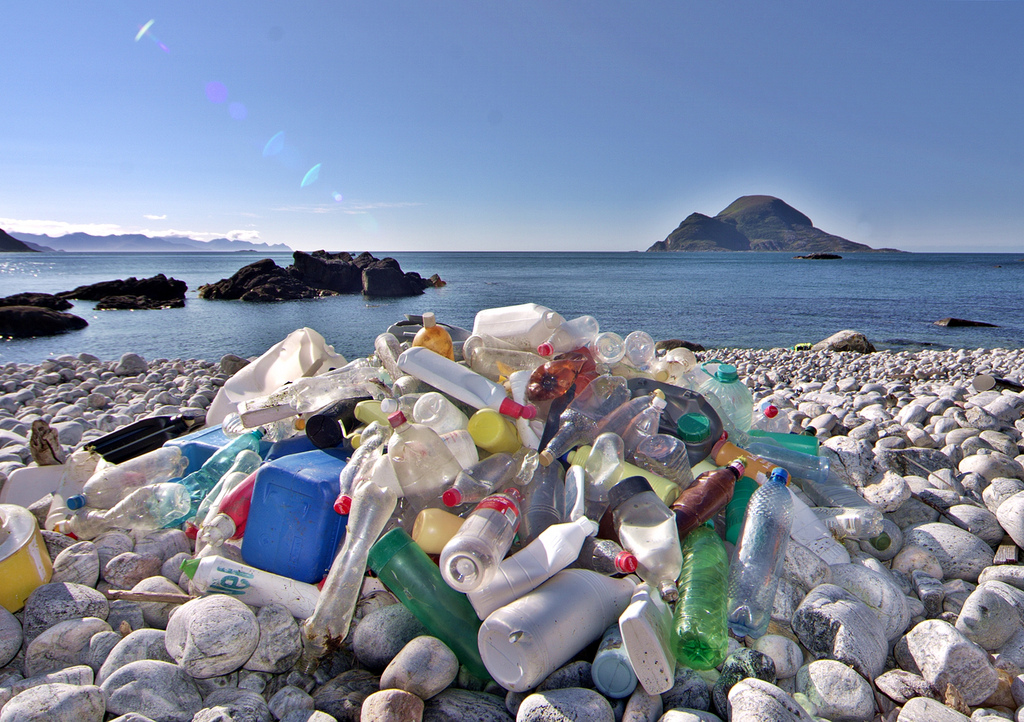The European Commission steps forward to reduce plastic pollution

The European Commission takes an initial step to raise awareness on plastic pollution and shift our approach to plastics.

Today the European Commission has stepped forward to address plastic pollution with the release of its Strategy on Plastics in the Circular Economy, says the Rethink Plastic alliance.
The Strategy lays out the Commission’s approach to reduce the impact of plastic pollution, including a commitment to investigate the scope of a legislative initiative on single-use plastics.
“As an initial step to raise awareness on plastic pollution and shift our approach to plastics, this Strategy will deliver. However, considering the urgency and the scale of the problem, the Commission has fallen short to bring real change” said Ariadna Rodrigo, Product Policy Campaigner, at Zero Waste Europe. “The legislation will be a good test to see how committed decision makers really are to tackle plastic pollution at its roots, starting with prevention and reduction of the unnecessary plastic items for which an alternative is already available. ”
“The European Commission is showing willingness to tackle the plastic pollution crisis”, said Delphine Lévi Alvarès, coordinator of Rethink Plastic, “but it is now essential to bring forward ambitious legislation to drastically reduce the consumption of both single-use plastic items and packaging within this Commission’s term”.
Rethink Plastic also welcomes the fact that the Commission has started the process to restrict the use of intentionally added microplastics in products such as cosmetics and detergents under the REACH legislation, and hopes that this will lead to a comprehensive ban of all microplastic ingredients.
The Commission also announced a ban on polluting oxoplastics – supposedly biodegradable plastics, which in reality break down into small fragments and contribute to harmful microplastic pollution in the oceans and other ecosystems. “This is an important environmental win. There is no place for oxo-plastics in a true circular economy, and a ban is urgently needed”, said Lévi Alvarès.
In addition, Rethink Plastic:
-
Welcomes the intention behind the objective that all plastics packaging on the EU market can be reused or recycled by 2030. However, the absence of a clear target and the inclusion that recycling must be “cost-effective” lessens the impact of the aim. This needs to be seen as a real opportunity to make all plastic packaging toxic free and environmentally sound.
-
Underlines that voluntary agreements and pledges expected to be developed by industry should in no way replace political action.
-
Welcomes measures to prevent the loss of pre-production plastic pellets, the second largest source of microplastic pollution, and notably the potential development of a certification scheme along the plastics supply chain to prevent pellet loss.
-
Welcomes the development of new measures to reduce the loss of fishing gear at sea, including possible recycling targets or deposit schemes to disincentivise dumping.
The Rethink Plastic alliance expects the European Commission to deliver, within its term, on the above commitments, and show true global leadership towards a future free from plastic pollution.
“The legislation will be a good test to see how committed decision makers really are to tackle plastic pollution at its roots, starting with prevention and reduction of the unnecessary plastic items for which an alternative is already available. ”